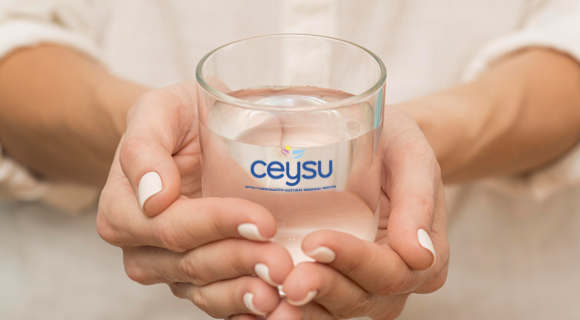
Water is essential to life, and staying hydrated has numerous positive benefits on one’s health. Despite being deemed fully safe and clean for eating, tap water can include dangerous contaminants including fluoride, arsenic, and mercury. The fact that more people than ever are moving to bottled water is therefore not surprising. Spring water is one of the most often used types of bottled water. But is spring water healthy to drink? Which is better for you, spring water or filtered water? Let’s debate this.
Purified water and natural spring water are two possibilities if you’re seeking a substitute for tap water and the chlorine and other contaminants it contains.
However, which one is superior and why? Knowing the facts before making a decision is crucial because adequate hydration is a crucial component of overall health.
You must first be familiar with some definitions. According to studies done by the US Food and Drug Administration (FDA), water must be “processed by distillation, reverse osmosis, or other appropriate method” to meet particular standards in order to be labelled as purified water.
Water that originates from “an underground formation from which water naturally flows to the surface, that water should only be collected from the source or through a borehole touching the underground formation feeding the source” is referred to as spring water.
The distinction between cleaned water and spring water
Spring water comes from a natural spring, as the name implies. As it travels through subsurface rock formations, it filters naturally and picks up valuable minerals. Calcium, potassium, and magnesium are nothing but just a few of the elements that give spring water its distinct flavour and potential health benefits.
On the other hand, purified water goes through a thorough filtration process to get rid of contaminants including chemicals, germs, and viruses. Reverse osmosis, deionization, and distillation are some of the techniques used in this procedure. Although naturally occurring minerals contained in spring water are also eliminated during the purification process, purified water is essentially impurity-free.
Advantages of spring water
The inherent mineral makeup of the spring water contributes to the daily intake of nutrients. Because of its purity, it does not have many pollutants like chlorine that are present in other forms of water. Because of these minerals, spring water is frequently regarded as superior since it has an unrivalled pleasant and clean taste.
The spring water also passes through natural filtration, preserving its fundamental qualities and keeping it drinkable. For individuals who value both health and taste in their hydration options, this makes it a fantastic choice.
Advantages of clean water
Water that has been purified is consistent and safe. Water is thoroughly cleaned to remove contaminants including bacteria, viruses, heavy metals, and chemicals that might be dangerous. Purified water is now safe to drink, especially in places where the quality of the water may be in question.
Additionally, regardless of the source, cleansed water always has the same flavour. It lacks the distinctive flavour characteristics of spring water because all pollutants and minerals have been eliminated, making it a neutral option for blending with other beverages or using in cooking.
What phases of water purification are there?
Purified water versus spring water to treat purified water, employ the following procedures:
flocculation and coagulation Typically, the earliest phases of water treatment involve adding positively charged compounds to the water. These positively charged compounds assist in neutralising negatively charged elements like dirt and pollution, resulting in floc, which are bigger particles.
Filtration: To filter this pure water, various sized sand, gravel, and charcoal filters are employed. Unwanted particles like dirt, dust, germs, and chemical pollutants are eliminated during this filtration process.
Disinfection: A chemical disinfectant, such as chlorine or chloramine, is used in this phase to eradicate any lingering bacteria or viruses. To make sure it is safe for ingestion, the disinfectant dosage is closely monitored.
Sedimentation: Because the flake weighs more, all impurities and debris settle to the bottom of the drinking water, leaving only clean water on the surface.
Which is healthier for your health: purified or spring water?
The response is subject to several considerations. Your primary objective will determine the type of water you require. If you dislike the taste of tap water, you can choose spring water or filtered water; if you are unsure of the water’s purity, you should choose spring water or filtered water.
Additionally, it alludes to global travel. The natural flavour of spring water is popular. This motivates them to drink more water to hydrate themselves. For instance, athletes should drink more water. The first cup of water and the fourth cup taste identical. They might feel the need for water, which causes them to consume more.
If you live somewhere hot, you should focus more on staying hydrated. Here, spring water can be helpful. If spring water is too expensive for you, purified water may be an economical alternative. You can also make sure you’re drinking enough water. In addition to tasting better, purified water is healthier than tap water. I am unable to say who is both healthier and healthier.
Spring water or purified water are acceptable water sources according to the FDA. They are purer than tap water and contain additives and nutrients. When looking for great hydration for your family, purified water can be reasonably priced.
The Bottom Line
Drinking sufficient amounts of water has several advantages and is necessary for survival. We enjoy the luxury of having a variety of options to pick from while looking for clean, safe drinking water in most modern nations. Popular and excellent options include spring water and filtered water.
Underground filtration naturally purifies spring water. It is gathered from wells or springs. In contrast, purified water is any liquid that has undergone a controlled filtration and purification procedure to eliminate contaminants.
The type you select is mostly determined by your personal preferences and what is offered. Both choices are secure and adhere to high security standards.
Choose the water you are most likely to drink at the end of the day.


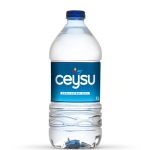
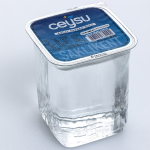
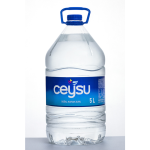

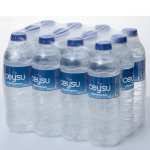
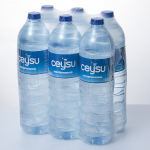

No comments yet.